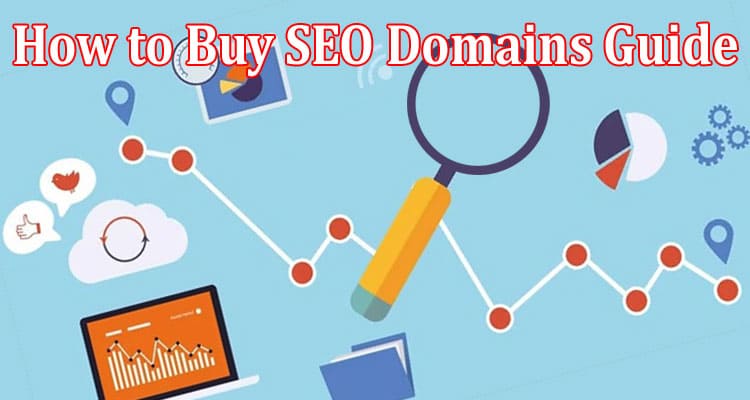How to Buy SEO Domains Guide
A properly chosen domain is a vital part of your website’s SEO profile. While the name is important, there are other parameters that also play an essential role. Buying the right domain from the right source can be a chore. Especially considering that not a lot of people know where to start, while everyone wants to own a website.
So, how do you even approach this task, and what do parameters do you look at?
Step 1: Define Your SEO Goals
When it comes to SEO, begins with a clear sense of direction. By defining your goals, you’ll pave the way for a strategic and effective approach to acquiring the right domain. This step comprises three critical sub-steps:
Identifying Your Target Audience
To effectively reach your audience, you must first know who they are. Take the time to dive into market research and understand your potential customers. Here’s how:
- Analyze the broader market, trends, demographics and consumer behavior of your industry.
- Develop detailed profiles of your ideal customers, including age, gender, interests, etc.
- Dive deep into demographic data, explore deeper psychographic aspects like values.
Determining Your Niche or Industry
Your choice of niche or industry will have a significant impact on the SEO domain you select. Here’s how to pinpoint the right niche:
- Clearly state the industry or niche you intend to operate in. Be specific about the products or services you plan to offer.
- Research your competitors within your chosen niche. Understand who they are, what they offer, and how they are positioned in the market.
- Look for gaps or opportunities within your chosen niche. Determine if there are underserved segments or areas where you can excel.
Establishing Clear SEO Objectives
Without well-defined SEO objectives, your efforts may lack focus. To set yourself up for success, follow these guidelines:
- Your objectives should be specific, leaving no room for ambiguity. Define what you want to achieve with your SEO efforts.
- Make sure your goals are measurable. Consider metrics like organic traffic, keyword rankings, conversion rates, or ROI.
- Set realistic goals that consider your industry, competition, and resources. Unrealistic expectations can lead to frustration and disappointment.
- Establish a timeline for achieving your SEO goals. Decide when you expect to see results and set milestones along the way for tracking progress.
This will hopefully help you gain invaluable insights that will shape your SEO domain acquisition strategy and set the stage for a successful SEO journey.
Step 2: Keyword Research
By conducting comprehensive keyword research, you’ll be better equipped to choose an SEO domain that aligns with your content and optimization goals. This step can be broken down into several key components:
Conducting Comprehensive Keyword Research
- Utilize keyword research tools to identify relevant keywords. These tools provide valuable insights into search volume, competition, and keyword variations.
- Begin with a list of seed keywords related to your niche or industry. These are general terms that serve as a starting point for research.
- Explore long-tail keywords—more specific, less competitive phrases that often convert well. They can help you capture highly targeted traffic.
Identifying High-Value Keywords
- Pay attention to search volume metrics to gauge the popularity of keywords. High search volume keywords may offer more traffic potential but can also be highly competitive.
- Ensure that the keywords you select are highly relevant to your niche, products, or services. Irrelevant keywords can lead to low-quality traffic.
- Consider the commercial intent of keywords. Are users likely to make a purchase or take a desired action when searching for these terms?
Selecting Keywords Relevant to Your Niche and Goals
- Ensure that the keywords you choose align with your niche or industry. They should reflect the topics and themes relevant to your business.
- Consider how these keywords will fit into your content strategy. Plan content that addresses user intent and provides value.
- Prioritize keywords that have the potential to drive conversions, whether that means sales, leads, or other desired actions.
By completing Step 2, you’ll have a well-researched list of keywords that will not only guide your content creation but also influence your choice of an SEO domain. This strategic approach will help you connect with your target audience and improve your search engine rankings.
Step 3: Choosing the Right Domain Name
Selecting the right domain name is a pivotal decision in your SEO domain acquisition journey. Your domain name can significantly impact your website’s search engine rankings and overall online presence. This step involves careful consideration and evaluation, and it can be broken down into several key factors:
Incorporating Keywords into Your Domain Name
Integrating relevant keywords into your domain name can enhance your website’s search engine visibility. Here’s how to do it effectively:
- Choose keywords that are directly relevant to your niche, business, or content. Ensure they reflect the core themes and topics you intend to cover.
- Incorporate keywords seamlessly into your domain name, avoiding forced or awkward combinations. The name should still sound natural and be easy to remember.
Keeping It Short, Memorable, and Easy to Spell
A concise, memorable, and easily spelled domain name can make a significant difference in user engagement and brand recognition. Consider the following:
- Aim for a short and concise domain name that’s easy to type and remember. Lengthy domain names can lead to user errors.
- Choose a name that sticks in the minds of your audience. Memorable domain names are more likely to result in direct traffic.
- Opt for a name that’s straightforward to spell. Complex or unusual spellings can confuse users and lead to missed opportunities.
Evaluating Domain History and Reputation
Consider the historical and reputational aspects of a domain name:
- Investigate the history of the domain you intend to purchase. Check for any previous usage that might have impacted its reputation. You can use tools such as the domain rating checker to better understand the backgrounds of domains.
- Be aware of any negative associations or penalties associated with the domain. Consider how this may affect your SEO efforts.
By following these guidelines and considerations in this step, you’ll be better equipped to make an informed decision when choosing the right SEO domain name. Your choice should align with your niche, content strategy, and SEO objectives, setting the stage for improved search engine rankings and online success.
Conclusion
It’s not a tedious process if you can get to the bottom of what SEO domains even are. From there, it’s a straight walk to understanding which domains are valuable and how to better obtain them. Hopefully, this guide helped you better realize the intricacies of purchasing SEO domains.




